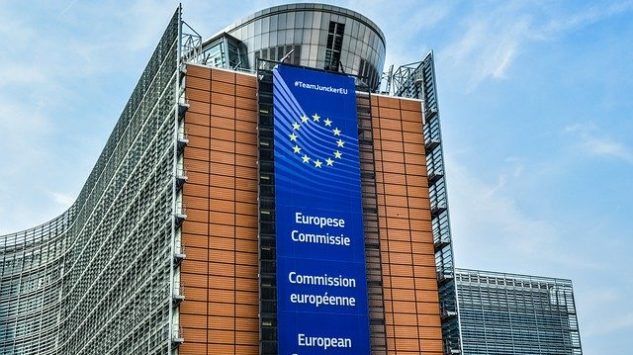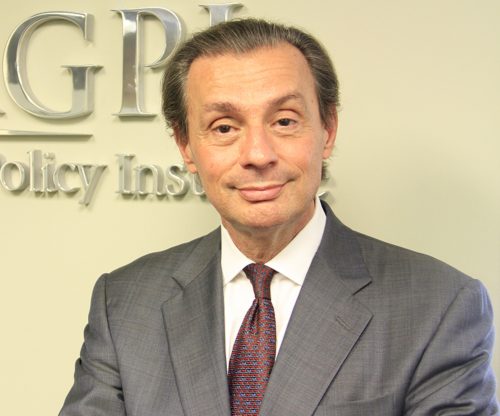Issue Briefs

Europe’s Dreams
January 13th 2019,
By Paolo Von Schirach
WASHINGTON – We heard from Ursula von der Leyen, the new President of the European Commission, that she will lead a “geopolitical” Commission. So, we are led to believe that, under her leadership, there will be deep thinking and strategizing about how to effectively combine the significant European economic, business, investments and military assets so that the EU will play a leading role on the world stage. From climate change to global development, international stability and cyber warfare, expect a cohesive, proactive Europe to be assertive and forceful when it will be necessary to foster stability and sustainability.
Big numbers hide structural weakness
Nice plan. Except that it is a total fantasy. The EU does not have and will not have the tools to become a dynamic force in world affairs. Sure, on the surface some EU numbers look very impressive. the EU total population is 512 million, much larger that America. If we put together the GDP of all its 27 members (UK on its way out) we get to about $ 19 trillion, almost the same as the US. If we combine defense spending of all EU Members we have the second largest defense budget in the world. And the EU is the largest foreign aid donor. Not to mention the clout of the EU in determining competition policy standards around the world, and a lot more.
So, a global force to be reckoned with? No, not really. The sad story about the EU is that these aggregate numbers are almost meaningless, simply because the EU, as conceived and currently structured, is unable to effectively combine the resources of all its members in order to obtain real synergies. And do not expect major institutional changes any time soon.
Dreams of a Federal Europe
Sadly, s strong Europe is destined to remain an unrealized dream. Right after WWII, there were a few fervent believers in a truly integrated new Europe that would have helped to eliminate the old intra-European rivalries, while redirecting the enormous potential of various European countries towards the goal of creating a new European Federal State. The European Federalist Movement led by Altiero Spinelli, and later on the Union of European Federalists, are the manifestations of this vision. However, these organizations never gained any real traction. They were and are essentially irrelevant.
EU is not a Federation
There is a European Union, of course; but it is not a Federal State, and it will never become one. Born out of the European Coal and Steel Community created in 1952 as a French olive branch to defeated Germany, the actual European project, (officially created in 1957, with the Treaties of Rome), went through many phases. It began as a European Common Market, then it developed into the European Community, and finally into the European Union. These name changes suggest an incremental integration process. And , in truth, there is more integration.
But Europe remains at its core an inter-governmental arrangement among sovereign states. Sure enough, a number of institutions have been created and nurtured, and all the EU Members agree to enforce EU norms and regulations on a large number of issues.
However, the qualitative step of merging all the Members States with the goal of creating a vibrant, unified European Federation was never taken, and I doubt that it will ever be taken. As a result, we have a hybrid. Certainly much more than a Free Trade Area, but a lot less than a real unified state.
A set of complex structures, laws and regulations
Over time, the EU created an extremely complex set of laws, rules and regulations enforced by a bureaucracy managed by Brussels based EU governing bodies. There is also a European Parliament that looks like a legislative body, however without the full sovereign powers of national parliaments. Some key EU states gave life to the Euro, the very successful European currency. And, of course, at the top of the pyramid, there is the EU executive body, the Commission, now presided over by Ms. von der Leyen. But the Commission President is not the elected Leader of Europe. She was nominated.
The Commission is led by a functionary
Therefore Ms. von der Leyen is not an elected political leader. She is a functionary. A very important functionary, with significant prerogatives, but still a functionary. The EU Commission enforces policy. Except for clearly designated areas, the EU carries out policy. It has no real, autonomous powers to make policy for Europe without the prior consent of the Member States.
No EU armed forces, no effective foreign policy
And this is only half the story. In order to affect global geopolitics, Europe should have credible tools. A critical one is a European foreign policy supported by real European armed forces.
Well, the EU has neither. Yes, it created the embryo of a foreign policy making body with a high official, (another appointed functionary), running it. But its discretionary powers are very limited. The EU can act in world affairs as one only if and when all the key Members agree on something. And this is very difficult, to put it mildly.
And when it comes to creating the backbone –that is real European armed forces– forget about it. There is nothing; and there will be nothing, except for high level commissions, studies and debates. And this is the case for various reasons. For a true European military force to be created, you would need as a foundation a robust political agreement among all EU Members on the size, purpose and command structure of such a force. And then Members would have to agree on an appropriate level of spending and how to pay for it.
Let NATO defend Europe
Politically, this is just too complicated. Besides, most EU Members are also NATO Members. Admittedly these days NATO’s purposes, force structure and capabilities are debatable. Still, NATO has the advantage of having been around since 1949. Whatever its shortcomings, it exists; while most European countries continue to believe that they are safe under what they would like to think is a still credible US security blanket.
Dreams and wishful thinking
So, here is the picture. In Europe dreams and fantasies abound, when it comes to a new, assertive EU role in the global arena. But there are no tools and therefore no real substance when it comes to the ability to play a credible, major role in world affairs. Ms. von der Leyen may talk about geopolitical goals for her Commission; but this is another instance of wishful thinking.
The views and opinions expressed in this issue brief are those of the author.
 |
Paolo von Schirach is President of the Global Policy Institute www.globalpi.org and Chair of Political Science and International Relations at Bay Atlantic University www.bau.edu He is also the Editor of the Schirach Report www.schirachreport.com |